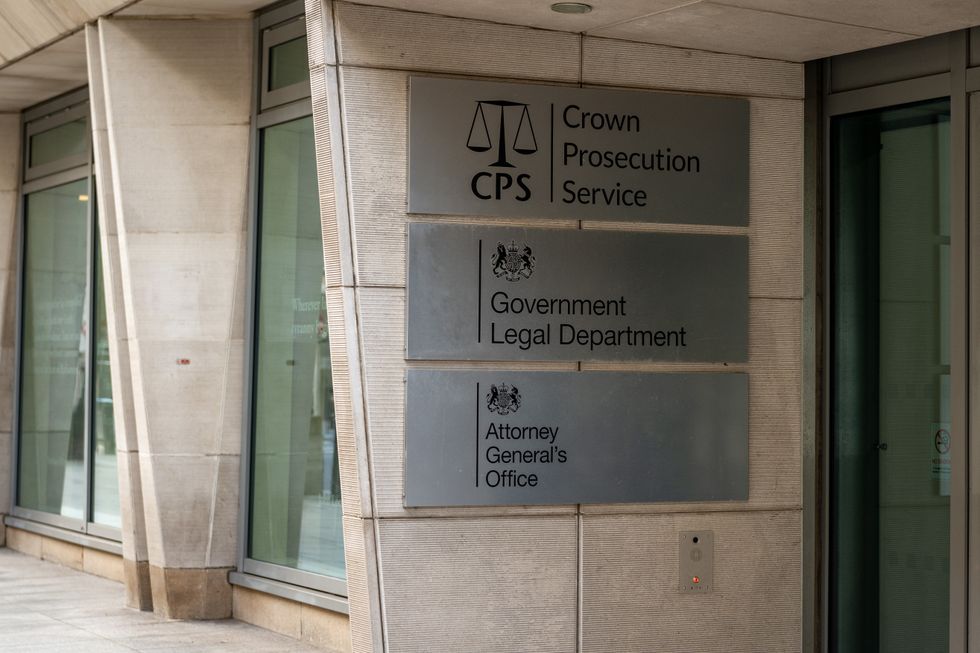Sentencing Council to be stripped of power in 'two-tier justice' crackdown

‘Palestine flags are everywhere!’ Martin Daubney rages at council’s vow to remove St George’s Flags in ‘two-tier’ row |
GB NEWS
The Justice Secretary will be handed the final say on any future decisions on controversial sentencing guidelines
Don't Miss
Most Read
Trending on GB News
The Justice Secretary will be given powers to veto changes to the sentencing guidelines which sparked a furious "two-tier justice" row earlier this year.
Shabana Mahmood said the new directive aimed to “right the democratic deficit that has been uncovered” - and will be given ultimate oversight on any new changes the Sentencing Council brings in.
Fury erupted across the nation earlier this year after the body published new guidelines to give "special treatment" to criminals from ethnic minority backgrounds.
Writing for GB News, Alex Story accused the Sentencing Council of "officially shattering our already weakening faith in our justice system" through its "openly apartheid-like sectarian guidelines".
The guidelines revealed that judges had been told to "normally consider" ordering a pre-sentence report on a convict if they came from “an ethnic minority, cultural minority, and/or faith minority community".

The move will hand the power to veto changes to Justice Secretary Shabana Mahmood
| PAHowever, ministers intervened by using emergency laws to block the updated Sentencing Council guidelines from coming into effect after intense public pressure over "two-tier" justice.
The fresh measure will be ushered in as part of the Sentencing Bill - set to go before Parliament on Tuesday.
The move will require any new guidelines proposed in future by the Sentencing Council to be approved by both the Justice Secretary and Lady Chief Justice, Baroness Carr.
The new powers will not interfere with judicial independence and will seek to enshrine a "democratic lock" into law, the Government has insisted.

The new powers will not interfere with judicial independence and seek to enshrine a 'democratic lock' into law, the Government have insisted
|GETTY
Ahead of the legislation being presented to the House of Commons, the Justice Secretary said: “Individual sentencing decisions will always be the responsibility of the independent judiciary - and this is something I will staunchly defend.
“However, policy must be set by parliamentarians, who answer to the people.
“Government and Parliament have a legitimate role in setting the sentencing framework.
"It is right that we now have greater democratic and judicial oversight of the direction of the Council’s work and the final guidelines they publish.”
TWO-TIER JUSTICE FURY - READ THE LATEST:
- Katie Lam tears into 'two-tier' Labour for Lucy Connolly sentencing: 'A real shame!'
- 'Lucy Connolly has become the face of two-tier justice in Britain'
- Suspended Labour councillor found not guilty after calling for protesters to have 'throats slit'
- Chris Philp demands review into ‘two-tier’ jail sentence for man who threatened to rape air hostess
The legislation will also seek to address the issue of overcrowded prisons, including “Texas-style earned release sentences” Ms Mahmood said.
The "good time credit" scheme deployed in the Lone Star State gives prisoners the opportunity to decrease their sentences by taking up jobs, enrolling in educational courses.
The credits are then added to the time already served by the inmate, enabling them to reach their parole dates more quickly.
Since the scheme was rolled out, Texas re-offending rates within three years of release dropped to 20.3 per cent compared to the national US average of 68 per cent.

Ms Mahmood visited the Estelle Supermax Penitentiary in Huntsville to see the scheme in action earlier this year
| PAMs Mahmood visited the Estelle Supermax Penitentiary in Huntsville to see the scheme in action earlier this year.
Following her visit, the Justice Secretary said: "The Texans had a system similar to ours - on the point of collapse, running out of prison places in 2007.
They've now got a sustainable prison population - but most importantly, they've been able to massively cut the rates of reoffending here."
She added: "It does help prisoners turn their backs on a life of crime."
More From GB News










